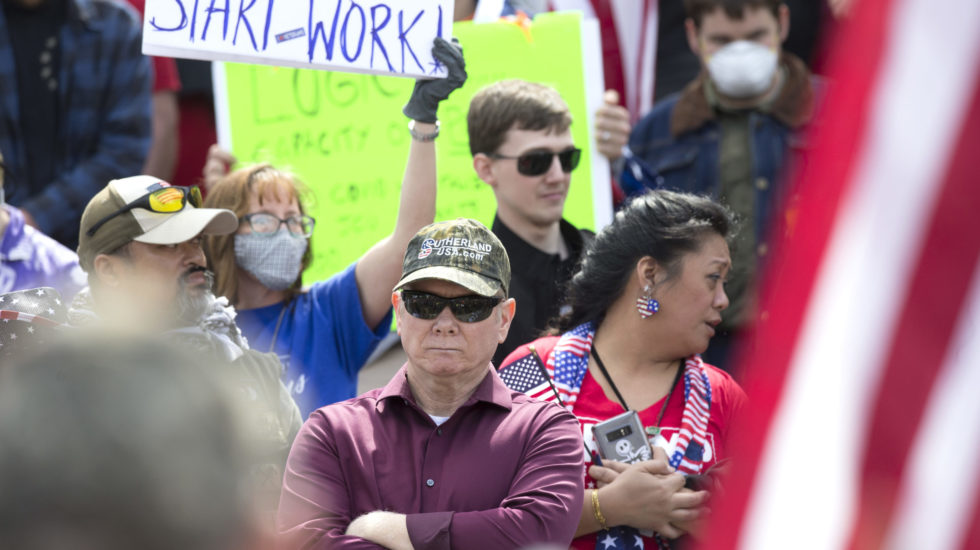It’s an old adage: Idle hands are the Devil’s workshop.
And it’s true, particularly for children prone to mischief when left unsupervised.
But it applies to idle minds, too: adult minds, unaccustomed to enforced idleness like the Covid-19 shutdown.
The political extremism that has run parallel to the pandemic for the past year — including the Jan. 6 riot at the U.S. Capitol — is all the proof you need, reports the Washington Post.
“People are isolated, alone, and they need to express their true selves,” Ian Bayne, who has organized anti-mask rallites in Nevada, told the Post. “I don’t know why we’re surprised that there’s more extremism now. People came to our rallies because they craved the human interaction.”
Early in the pandemic, as Covid-driven shutdowns “paralyzed the economy … Americans sharply increased searches for extremist and white supremacist materials online,” ” the Post says, citing Moonshot CVE, a research firm that studies extremism.
Historically, this is nothing new.
“Plagues have always led to apocalyptic thinking,” says John Fea, a historian at Messiah University, an evangelical Christian school in Mechanicsburg, Pa.
The 1918 “Spanish flu” pandemic killed about 675,000 Americans; in response, “many Christians argued that succumbing to pleas from public health officials to wear masks ‘represented a lack of faith,’” Fea said.
And it goes back much further, to at least the Black Plague of the Middle Ages.
“Since ancient times, pandemics have spurred sharp turns in political beliefs, spawning extremist movements, waves of mistrust and wholesale rejection of authorities. Nearly a year into the coronavirus crisis, Americans are falling prey to the same phenomenon,” the Post says.
Experts and influential figures of all stripes, including religious leaders, say pretty much the same thing.
The “economic wallop” combined with the “lethal punch” of the coronavirus has “reminded Americans of their own mortality,” creating a sense of “social dislocation and a loss of confidence in all institutions,” said Richard Land, president of Southern Evangelical Seminary outside Charlotte NC.
“In the wake of Covid-19, it appears that far-right extremists have discovered the extent of people’s fear of social control and loss of liberty and have realized how easily they can manipulate citizens who may not normally subscribe to extreme ideology,” according to a recent study by social psychologist Arie Kruglanski of the University of Maryland.
